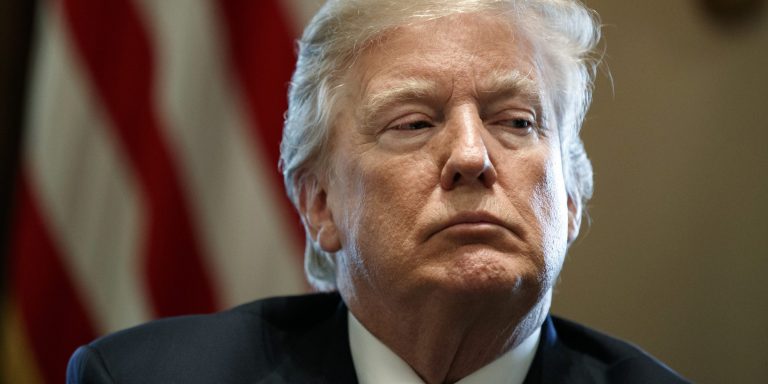INTELBRIEF
January 16, 2018
IntelBrief: Setting the Stage for U.S Withdrawal from the Iran Nuclear Deal

- President Trump’s conditions to continue implementing the nuclear deal with Iran are unlikely to be met by other major powers, and the United States is likely to withdraw from the accord by late spring.
- U.S. policy makers are working with Congress and European countries to satisfy at least some of the president’s demands to save the deal.
- If the U.S. withdraws from the accord, the EU and other major powers will not follow suit, but re-imposed U.S. sanctions will take a toll on Iran’s economy.
- The challenge for President Rouhani will be to convince the Iranian public and his hardline opponents that Iran should continue implementing the agreement, even with diminished economic benefits.
On January 12, President Trump renewed the waivers of U.S. sanctions against Iran, keeping the U.S. in the Iran nuclear agreement. However, he asserted he will not renew the sanctions waivers when they expire in May unless Congress and the European Union (EU) address the key inadequacies of the agreement. His primary requirements are that sanctions be re-imposed if Iran’s nuclear program exceeds the restrictions of the agreement, even after those restrictions expire under the accord; that ‘severe’ multilateral sanctions be imposed on Iran’s ballistic missile program; and, that Iran allow ‘immediate’ inspections at all sites requested by international inspectors.
The first and third of the requirements will be virtually impossible to meet. In response to Trump’s statement, Iranian leaders said that they will not renegotiate the agreement. The EU acknowledges the agreement’s flaws, but insist it is accomplishing its main objective. It further insists that Iran not be compelled to reopen its provisions, and holds that EU sanctions will not be re-imposed if Iran refuses to abide by the new U.S. conditions. The U.S. Congress, on the other hand, generally has the same view of Iran that President Trump does and is likely to act on legislation that would meet Trump’s demands. Still, with the requested action by the EU unlikely, is highly probable that President Trump will make good on his threat not to renew the sanctions waivers in May, effectively withdrawing the U.S. from the accord.
Trump’s top officials, particularly Secretary of State Tillerson, continue to hold out hope of convincing the President to remain in the nuclear agreement. Tillerson and other top officials are working to obtain pledges from European leaders, particularly French President Emmanuel Macron, to increase sanctions on Iran’s missile program and to support extending the agreement’s nuclear restrictions indefinitely. Tillerson and his European counterparts are hopeful they can obtain, at the very least, a binding pledge from Iran not to develop missiles of intercontinental range (over 3,000 mile range). It’s debatable whether Trump would remain in the agreement in response to modest European or Iranian concessions that fall short of his stated conditions.
Should the U.S. pull out of the Iran deal, it is certain that the EU countries and the two other major parties to the Iran deal, Russia and China, will not follow suit by re-imposing sanctions on Iran. However, particularly in the case of the EU, major corporations are not government controlled and many major companies could be expected to exit the Iran market if U.S. sanctions are re-imposed. U.S. sanctions are primarily ‘secondary sanctions’ that present foreign firms with the choice of doing business with Iran or doing business in the United States, and major corporations do not want to risk being shut out of the much larger U.S. economy. Therefore, the re-imposition of U.S. sanctions will take a substantial toll on the Iranian economy, no matter what other governments do in response to a U.S. withdrawal from the nuclear agreement.
The greatest level of uncertainty surrounds Iran’s likely reaction to a U.S. withdrawal. Iranian leaders have long said–and it is explicitly stated in the accord itself–that Iran will view the re-imposition of U.S. sanctions as justification to cease abiding by the agreement’s nuclear restrictions. However, if faced with that U.S. action, Iran’s response is likely to be more nuanced. Iran will likely continue abiding by its provisions in the hopes that European and others’ non-cooperation with the U.S. will mitigate the effects of sanctions on Iran’s economy. Iranian leaders will seek maximum advantage from the perception that it was the U.S. that undermined the agreement, not Iran. The challenge for Iran’s President Hassan Rouhani will be to convince the Iranian public and his hardline opponents that Iran should continue implementing the agreement even though the economic benefits of it might diminish. It is certain that, no matter the effect of re-imposed U.S. sanctions on its economy, Iran will not return to the bargaining table to renegotiate the accord based on U.S. pressure to capitulate.
For tailored research and analysis, please contact: info@thesoufancenter.org
[video width="960" height="540" mp4="https://thesoufancenter.org/wp-content/uploads/2018/01/Final-Edit-1-110.mp4" poster="https://thesoufancenter.org/wp-content/uploads/2018/01/AP_18013234611841-1.jpg"][/video]